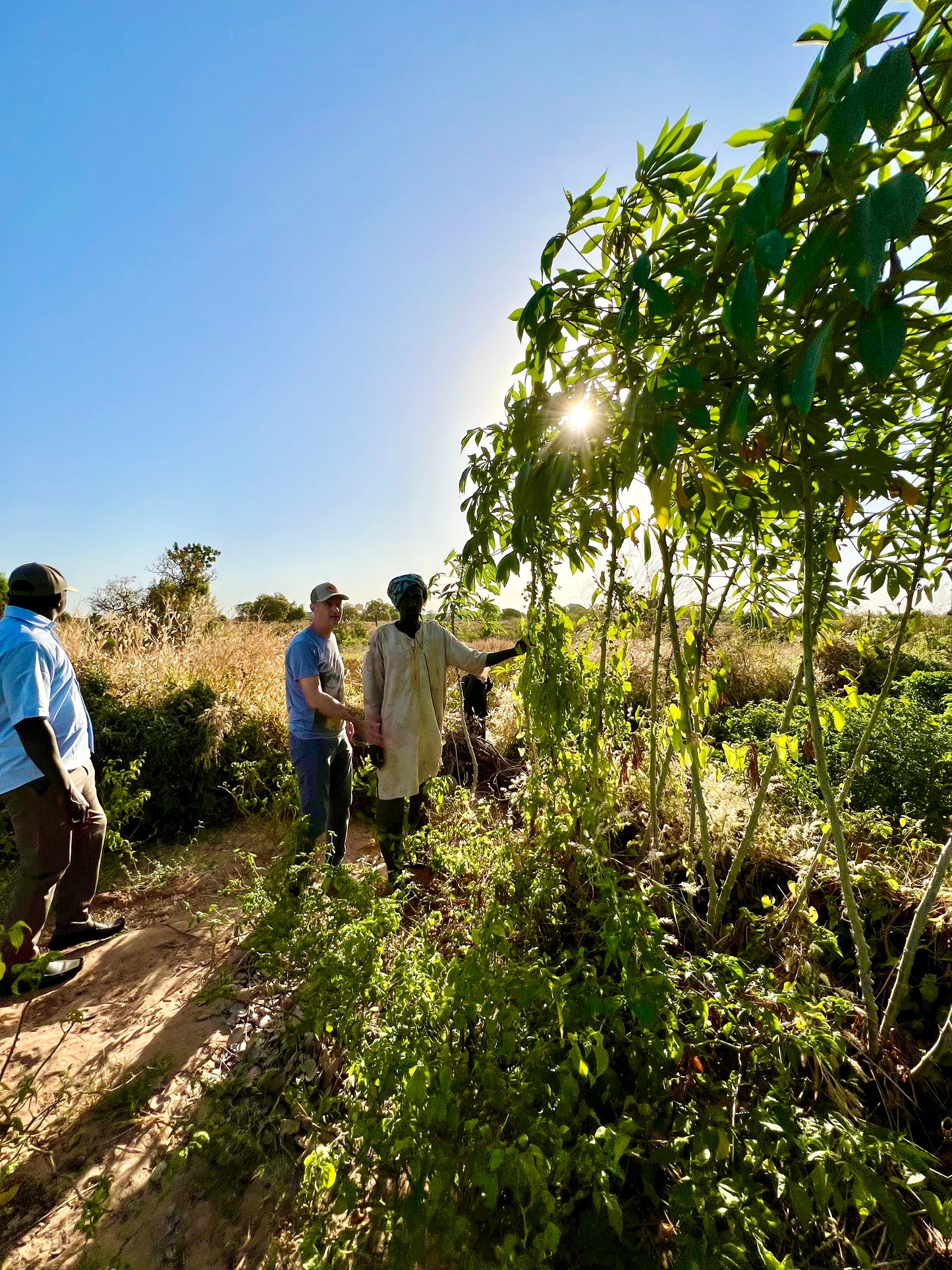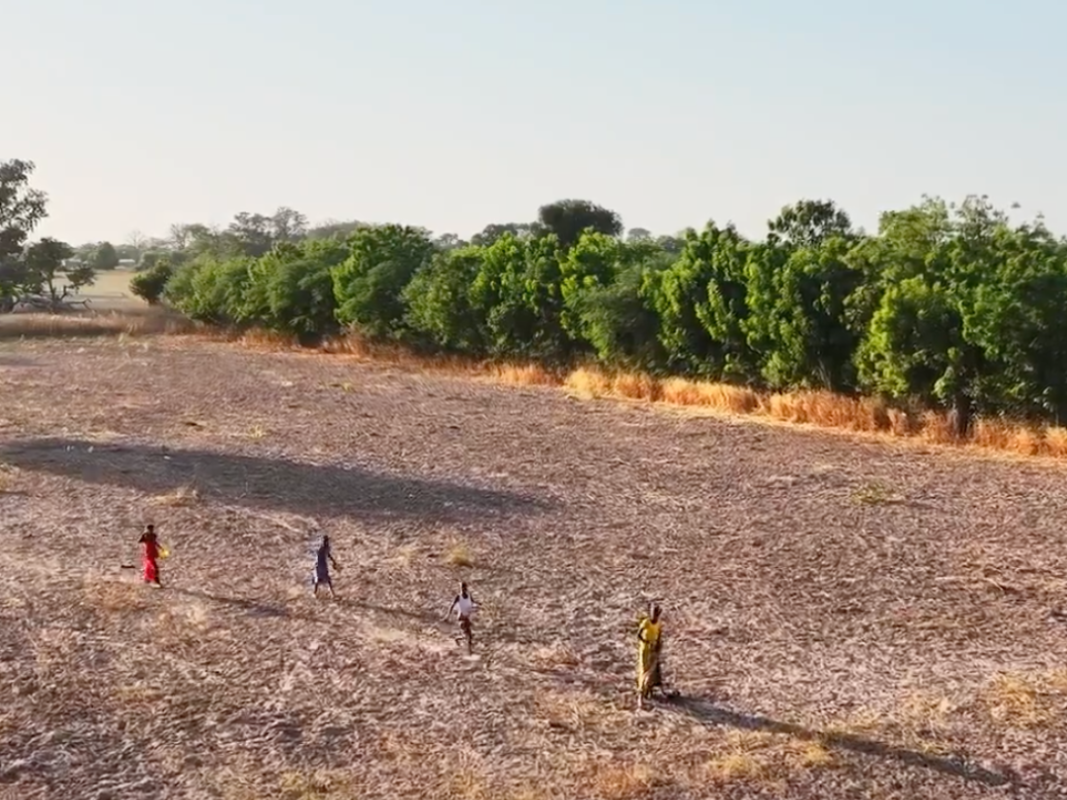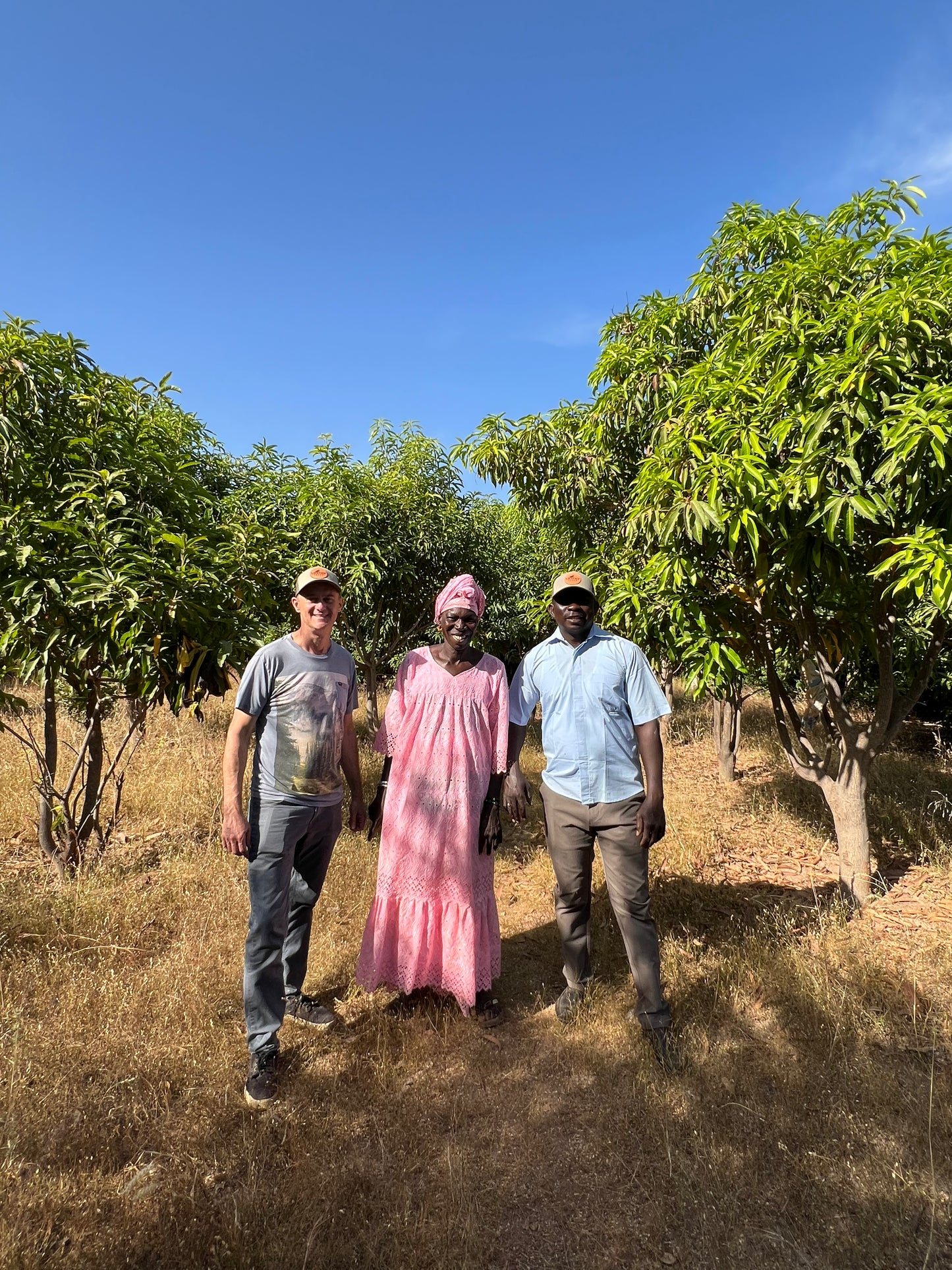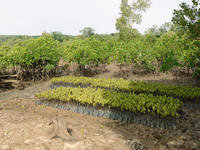
Senegal Agroforestry Restoration Project.
Agriculture sustains Senegal’s economy, but conventional crop intensification has harmed livelihoods, soils and biodiversity while worsening climate effects. This program restores degraded land, promotes sustainability and empowers communities to ensure the Gambia River Watershed's long-term health.
Impact of your contribution.

Community based approach.
Peanut monocropping has led to adverse environmental and economic impacts. The Ndankou and Patte Forests, despite successful past management, face threats such as encroaching peanut farming and reduced forest cover. The Senegal program seeks to restore as much of the 30,000 hectares of degraded land surrounding the forests as possible, starting with 6,000 farming families each with one hectare each.
By rehabilitating degraded lands, implementing sustainable practices, and fostering community ownership, the program aims to contribute to the long-term richness and sustainability of the Gambia River Watershed.

With the support of Mother Tree and local farmers, this project helps to promote and verify sustainable agroforestry in Senegal. This program involves equipping smallhold farmers with the skills and expertise to improve productivity, soil health, and climate resilience of their crops. This in turn makes farming more profitable, sustainable, and resilient against our changing climate.
In the world of agriculture, regenerative agroforestry is a transformative practice that not only boosts productivity but also nurtures ecological balance.

Your support matters.
Through the strategic integration of trees alongside crops, agroforestry provides numerous benefits. Trees act as natural barriers, preventing soil erosion and holding the soil in place. They offer shade to the crops, reducing moisture loss and improving growth conditions. Furthermore, trees contribute to water filtration and retention, and their biomass and leaf litter enrich the soil, providing natural fertilization. This holistic approach nurtures soil health, enhances biodiversity, and fosters a more resilient agricultural system.

Key impacts.
- Agroforestry has a key role to play in ending hunger and poverty in Senegal.
- Protection of communities and crops as trees act as natural barriers, preventing soil erosion and holding the soil in place.
- Support farming to be more profitable, sustainable, and resilient against our changing climate.




















